Gamuda AI Academy graduates first Sabah cohort, signals growing potential in AI talent development
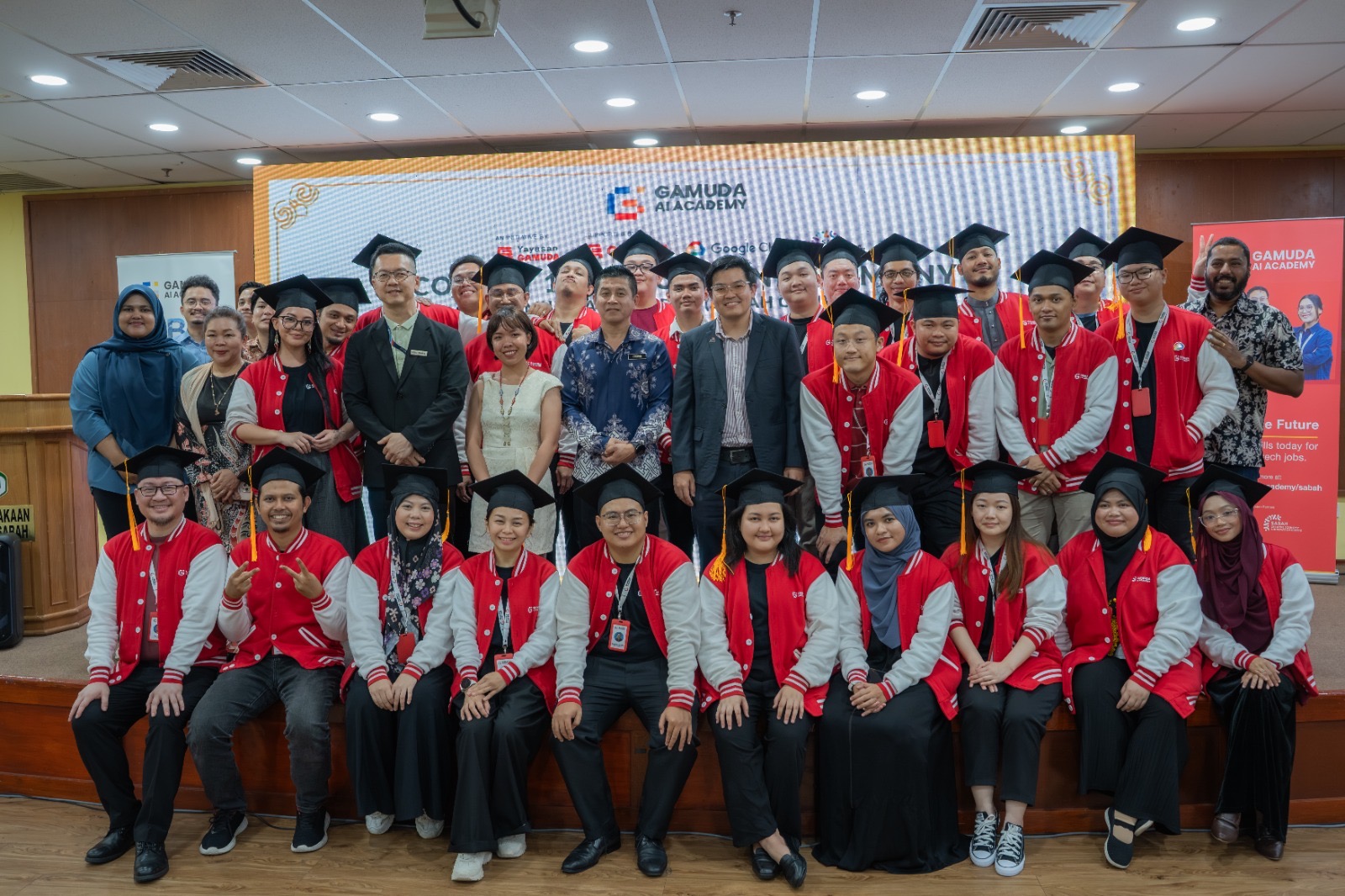
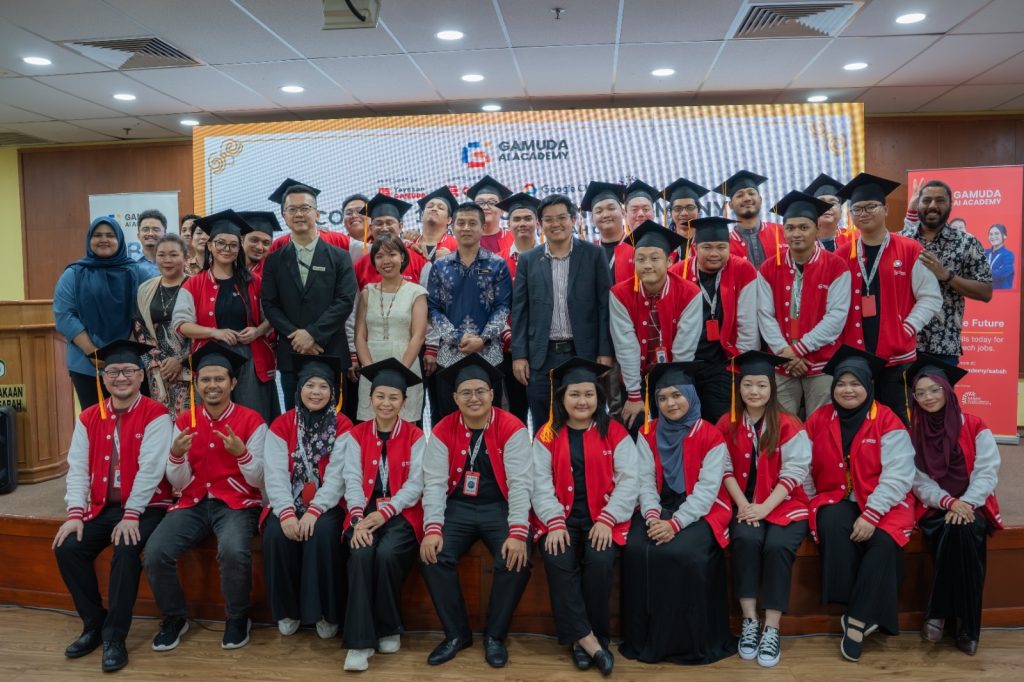
Kota Kinabalu (Oct 3): The first batch of graduates from the Gamuda AI Academy Sabah Campus completed their training on September 18, marking a steady step forward in Sabah’s ongoing journey towards developing a homegrown digital and AI talent base.
Launched by Gamuda Berhad under Yayasan Gamuda in Sabah in July 2025, this is East Malaysia’s first AI learning centre and the second nationwide, following the successful launch of its first campus in Kuala Lumpur in September 2024.
The fully-sponsored three-month programme by Gamuda AI Academy Sabah Campus is utilising the power of Google Cloud’s AI platform, and in collaboration with the Sabah Creative Economy and Innovation Centre (SCENIC), Sabah State Library and Sabah Net, trained 27 Sabahan participants in foundational and applied artificial intelligence (AI) skills. Many of the participants came from non-technical backgrounds, making the successful completion of real-world AI projects during the Capstone Presentation all the more notable.
Projects ranged from AI tools for roadwork and pothole detection to applications in personalised e-commerce, examples that reflect both the practical nature of the training and the students’ efforts to address local needs.
Gamuda Group Chief Digital Officer, John Lim Ji Xiong, said the Academy is part of a broader effort to strengthen digital capabilities nationwide, particularly in regions like Sabah, where talent is present but opportunities may be limited.
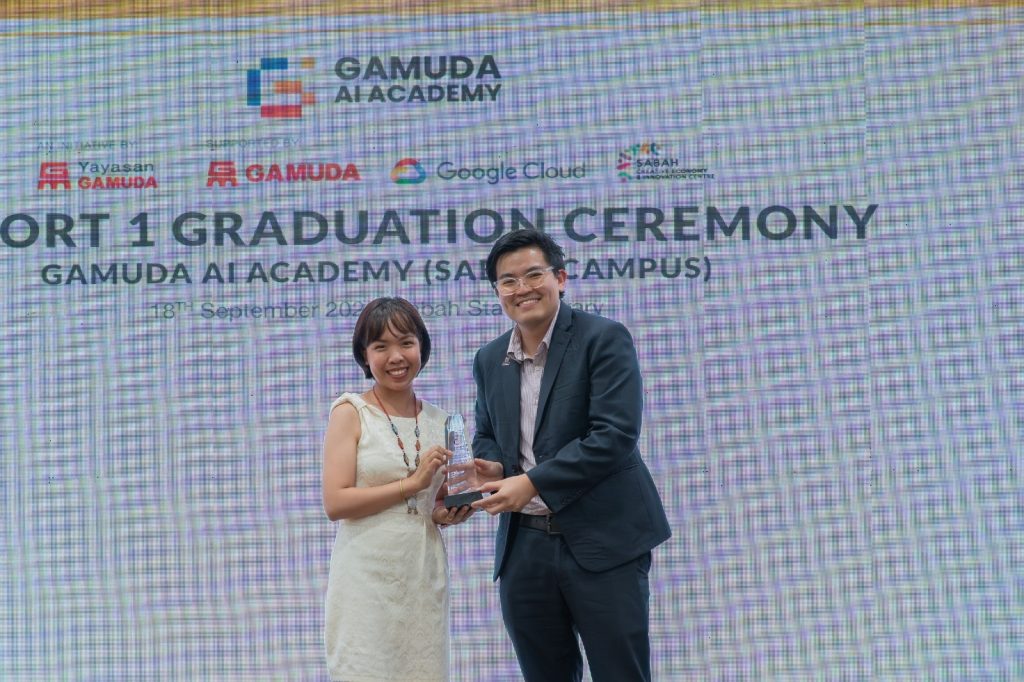
“There are jobs being outsourced to other countries today. Some of that work could be done here, contributing to both the local economy and the broader tech ecosystem,” he said.
Lim further explained that the Academy, developed in collaboration with Google Cloud, is designed to be accessible to individuals from various backgrounds.
“We’re helping people learn how to use AI tools like Google’s Gemini and deploy them in real-world workflows, even if they haven’t studied computer science before,” he added.
He also urged the graduates to harness technology not only for profit, but to drive positive transformation within their communities in Sabah, Malaysia and beyond.
The Academy’s Lead Trainer, John Stefan anak Serit, described the participants’ progress as encouraging.
“The Sabahan students have shown strong determination and an ability to pick up new technical skills quickly. Within just three months, they’ve gone from learning the basics to applying AI in ways that could help solve issues in their own communities,” he said.
He added that the Academy stands out due to its hands-on, project-based approach and full sponsorship, making it accessible regardless of a student’s financial background.
“We use tools that lower the barrier to entry, such as Google Cloud’s no-code and low-code solutions, allowing more people to participate in the AI space,” Stefan noted.
Among the graduates was Esther Rimah Richard, an influencer and former corporate tech sales professional. She spoke about how AI has added value to her creative work.
“As an influencer, I’m used to creating and connecting with people. AI complements that by helping me analyse trends, save time and bring more creativity into my content.
“It makes me not just a creator, but more innovative in how I grow my brand,” she said.
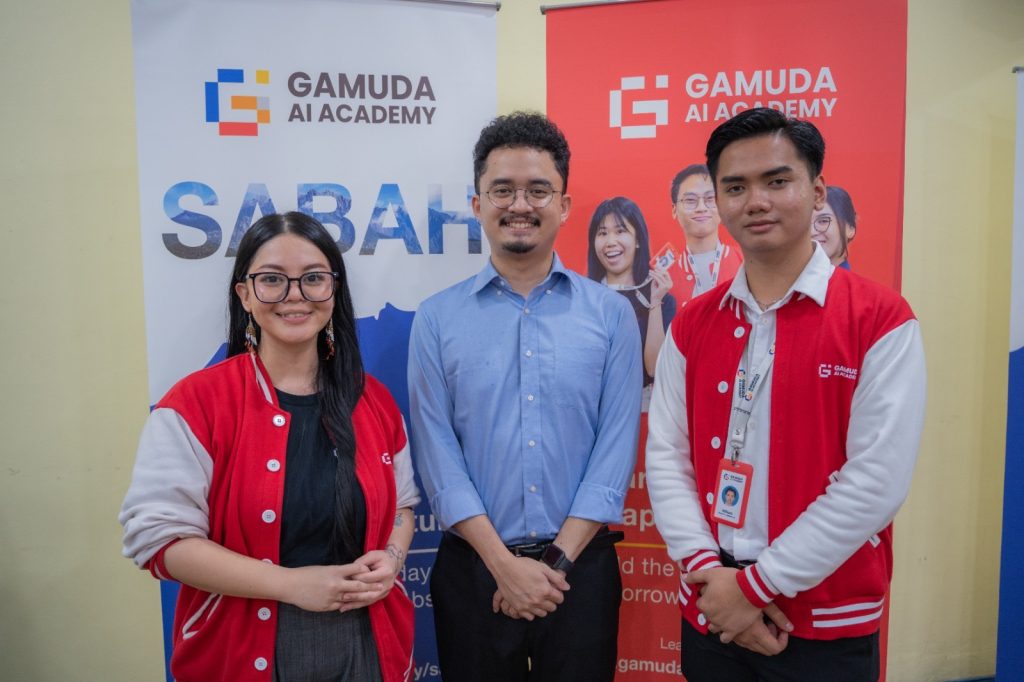
“Opportunities like this are usually centred in KL or overseas. Having world-class AI training in Sabah shows that our state is not being left behind.
“It allows us to develop meaningful skills without needing to leave home, and to contribute directly to Sabah’s own digital future,” she added.
Another graduate, Wealfearnius Justin, previously worked in customer service and holds a degree in petroleum engineering. He joined the programme to expand his career options.
“I realised the oil and gas job market was really competitive after I graduated. The Academy gave me a chance to learn something new, challenge myself, and think long-term,” he said.
“The biggest takeaway for me is that tech doesn’t replace my engineering background. It complements it. AI has a role to play in energy, safety, and smart decision-making. It’s made me reimagine how I can work in both fields,” he added.
Both Esther and Wealfearnius are currently exploring new paths. Esther will continue creating content and learning AI independently, while Wealfearnius is actively applying for roles that combine his engineering foundation with his new digital skills.
Meanwhile, SCENIC’s Acting Chief Executive Officer, Larainn Jaminih, said the collaboration between government and industry is key to ensuring Sabah’s inclusion in the national digital agenda.
“Public-private partnerships are essential if we want to grow a resilient tech ecosystem in Sabah. With Gamuda AI Academy, we’re giving our youth access to relevant skills and opening pathways to possible employment or entrepreneurship,” she said.
Larainn also shared that some of the Capstone projects have potential for further development and could be supported through SCENIC’s digital innovation sandbox, a programme that helps early-stage ideas access funding and mentorship.
Following the success of the pilot, Gamuda plans to begin Cohort 2 shortly, with over 30 students ready to join. A dedicated campus in Sabah is also in the works for Cohort 3.
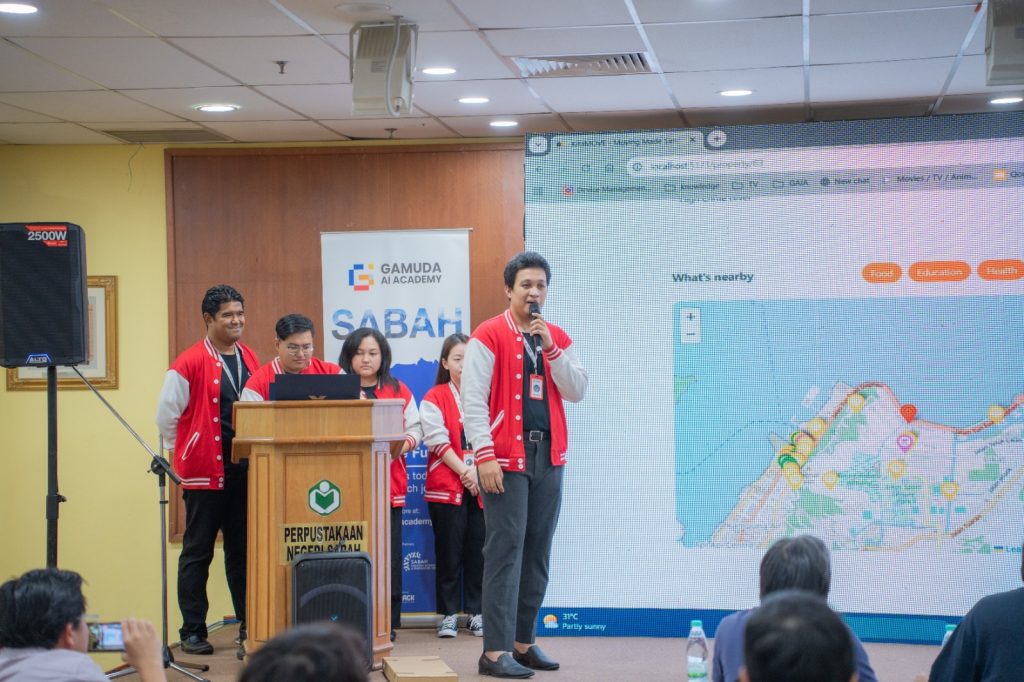
Sabah’s journey into the digital economy is still in its early stages, but initiatives like the Gamuda AI Academy provide a practical foundation for growth.
By equipping local talent with relevant skills and building public-private partnerships that prioritise access, Sabah is gradually positioning itself as a contributor to Malaysia’s and potentially the region’s AI landscape.
Cohort 3 at the Sabah Campus will run from 19 January 2026 to 9 April 2026, with registration open till 2 January 2026. Meanwhile Cohort 5 at the Kuala Lumpur Campus will take place from 5 January 2026 to 26 March 2026, with registration open till 26 December 2025.
Visit www.gamudaai.academy for more info

